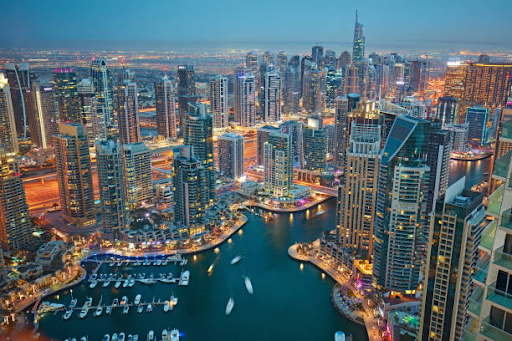Moving to Dubai offers a wealth of opportunities, attracting expats from all over the globe. If you’re considering making this vibrant city your home, the first crucial step is understanding how to get a residence visa in Dubai. How to get residence visa in Dubai? The costs associated with obtaining a Dubai Residence Visa can vary significantly based on the type of visa, additional requirements, and unforeseen expenses. This article delves into the various financial aspects involved in obtaining a residence visa in Dubai, covering application fees, medical insurance, Emirates ID costs, and other essential considerations. Whether you’re moving for a job, investment, or to reunite with family, grasping these costs is vital for budgeting wisely. Let’s explore the administrative and financial responsibilities that come with this process.

What is a Dubai Residence Visa?
Overview of Residence Visas
The Dubai Residence Visa is a legal permit that allows expatriates to live, work, or study in Dubai. Understanding the types of residence visas available is essential in determining what fits your needs best. Here are the primary types of Dubai residence visas:
Types of Dubai Residence Visas
- Employment Visa: Sponsored by an employer; ideal for individuals securing a job in Dubai.
- Investor Visa: Suitable for those who invest in property or business in Dubai.
- Family Visa: Designed for expatriates who wish to sponsor family members.
Costs Associated with Obtaining a Dubai Residence Visa
Application Fees
The first financial hurdle to clear while obtaining a Dubai Residence Visa is the application fee. This fee is often dependent on the type of visa you’re applying for, but it typically ranges from AED 3,000 to AED 7,000. The application process involves submitting various documents that justify your eligibility for the chosen visa type. Additionally, government regulations often lead to cost variations, so it’s wise to verify current rates. These fees may also encompass medical test expenses required by the authorities. Understanding this upfront can help avoid any financial surprises during the application process.
Medical Insurance Requirements
One of the major documents required for a Dubai Residence Visa is proof of valid health insurance. Health insurance is not just a formality; it’s a mandatory requirement for all expatriates living in the emirate. Typically, basic health insurance can range from AED 500 to AED 2,500 annually, depending on the coverage level. It’s essential to choose a plan that meets Dubai’s minimum coverage standards while addressing your personal health needs. Here’s an overview of mandatory health insurance aspects for a Dubai Residence Visa:
| Coverage Type | Cost (AED) |
|---|---|
| Basic Health Plan | 500 – 1,500 |
| Comprehensive Health Plan | 1,500 – 2,500 |
Emirates ID Fees
Upon receiving a residence visa, you’ll also need to apply for an Emirates ID, which is crucial for identification and many official transactions in the UAE. The costs related to the Emirates ID application typically fall between AED 100 to AED 300 for new applicants. Along with the initial application fee, you should consider renewal expenses that occur every two to three years. This ID serves as proof of residency, and not having one can lead to legal issues. As such, budgeting for the Emirates ID is an essential part of your overall visa costs.
Document Processing and Legal Fees
Applying for a Dubai Residence Visa requires several documents, including birth certificates, marriage certificates (if applicable), and educational qualifications. Each of these documents must often be translated into Arabic, and some may require attestation from your home country. The expenses for document processing can vary, but budget around AED 500 to AED 2,000 depending on how many documents need translation and attestation. Being adequately prepared with the right documents can save you both time and money in the long run.
Other Financial Considerations
Renewal Costs
Once you have your Dubai Residence Visa, it’s essential to keep track of its validity period. Typically, residence visas are valid for two to three years, at which point you will need to renew it. The renewal process is similar to the initial application and typically incurs fees ranging from AED 1,000 to AED 3,000, alongside health insurance renewal and new Emirates ID fees. Regularly reminding yourself and preparing for these continued expenses is imperative to avoid any lapse in residency.
Hidden Costs You Should Know
In addition to the obvious expenses related to the application and renewal of a residence visa, there are several hidden costs that may arise. For instance, if you wish to sponsor family members on a Family Visa, additional fees may be incurred. Moreover, costs associated with legal services, administrative paperwork, and unexpected medical expenses can quickly accumulate. Therefore, it’s essential to maintain a well-thought-out budget to account for these possible expenditures. Here are some other hidden costs to consider:
- Dependent visas: Costs vary based on family size and type of visa.
- Legal fees: Hiring legal assistance for documentation can add up.
Conclusion
Understanding the costs associated with obtaining a Dubai Residence Visa is crucial for anyone considering relocating to this bustling city. The total expenses can range from application fees, health insurance premiums, Emirates ID costs, and hidden fees, which can collectively sum up to a significant amount. Additionally, always be prepared for renewal costs and other unforeseen expenses. Educating yourself on these financial considerations will help you budget effectively and ensure a smoother transition into your new life in Dubai.
FAQs
How long is a Dubai Residence Visa valid?
Ответ 1: A Dubai Residence Visa is typically valid for 2-3 years, depending on the type of visa issued.
Are there any additional costs when renewing a residence visa?
Ответ 2: Yes, renewal may involve application fees, medical testing costs, and potentially insurance renewals which can add up.
Is health insurance mandatory for obtaining a Dubai Residence Visa?
Ответ 3: Yes, health insurance is mandatory in Dubai, and you must provide proof of coverage during the visa application process.
What happens if I overstay my Dubai Residence Visa?
Ответ 4: Overstaying can result in fines, penalties, and potential legal action, so it’s crucial to renew your visa on time.
Can I include my family in my Dubai Residence Visa application?
Ответ 5: Yes, you can sponsor your family members under a Family Visa, which may involve additional costs.
